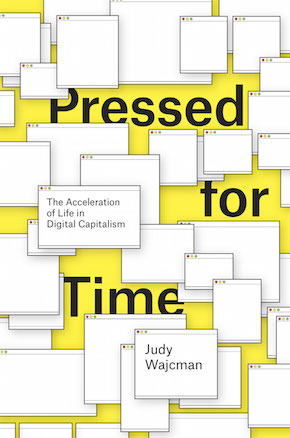Judy Wacjman on digital serfdom and the future of work
In a piece for Pacific Standard, as part of their Future of Work series, in collaboration with the Center for Advanced Study in the Behavioral Sciences at Stanford University, Judy Wacjman tackled themes from her recent book Pressed for Time: The Acceleration of Life in Digital Capitalism, which accounted for our paradoxical desire to interpret our experience of digital technology as bound up with the hastening of everyday life:
Such anxieties are based on a fundamental misreading of the relationship between humans and machines. I have been researching technological change for 30 years, and one thing I’ve learned is that technology never simply speeds things up. Rather, every major technological innovation comes hand in hand with new activities and experiences, creating new ways of working and socializing. Indeed, often as not, its effects are counter-intuitive and contradictory, surprising even the designers. So the very same devices that can make us feel overworked and harried also enable us to work more efficiently and take more control of our time.
In other words, the notion that we are all cyber-serfs, technologically tethered workers, is far too one-dimensional. It attributes too much power and agency to technology itself. While it is true that we have all become “networked workers” equipped with computers, tablets, smartphones, and landlines, how we deploy these devices crucially depends on what kind of work we do, where, and with whom. While I was being driven to Edinburgh airport recently, the taxi driver proceeded to have an argument with his son on his hands-free phone. His occupation, unlike mine, involves a lot of waiting and I imagine that the quality and utility of that time has been much improved by mobile connectivity.
